Syria 'chemical attack' prompts social media messages
- Published
Some are changing their online profile pictures to plain yellow following a suspected chemical attack in Syria's Idlib
Images are being shared on social media conveying humanitarian and political messages in light of the suspected chemical attack in Syria's northern Idlib province on Tuesday.
Dozens of civilians, including children, were killed and injured in the attack carried out on the rebel-held town of Khan Sheikhoun.
The majority of images and videos circulated online show the victims either dead or suffering.
Many people changed their profile pictures on Facebook and Twitter to plain yellow - a colour symbolising toxic gas - to show their awareness of the incident. A Syrian war journalist said, external this would help draw more media attention to the story.
Other yellow backgrounds shared online include this illustration of dead children in silhouette being carried up to the sky by toxic balloons with the term "chemical massacre", external. The images are reminiscent of those shared following the Ghouta chemical attack in 2013 when over 1,000 people were said to have been killed.
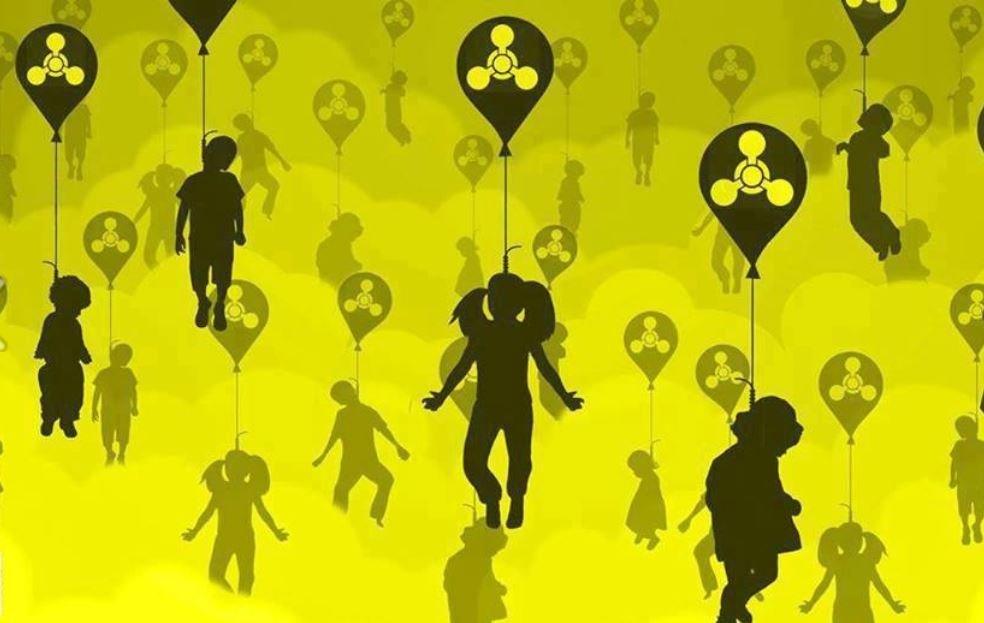
Images shared online are reminiscent of the 2013 chemical attack in Syria's Ghouta
One of the prominent online images in the wake of the attack showed, external faces of dead children superimposed on billowing clouds of smoke. While the original image is from a strike on Gaza, it was used to convey the loss of Syrian children in Idlib.
US artist and teacher Marc Nelson, who sketches scenes from the Syrian war, shared, external several of his works including images of children killed in the attack.
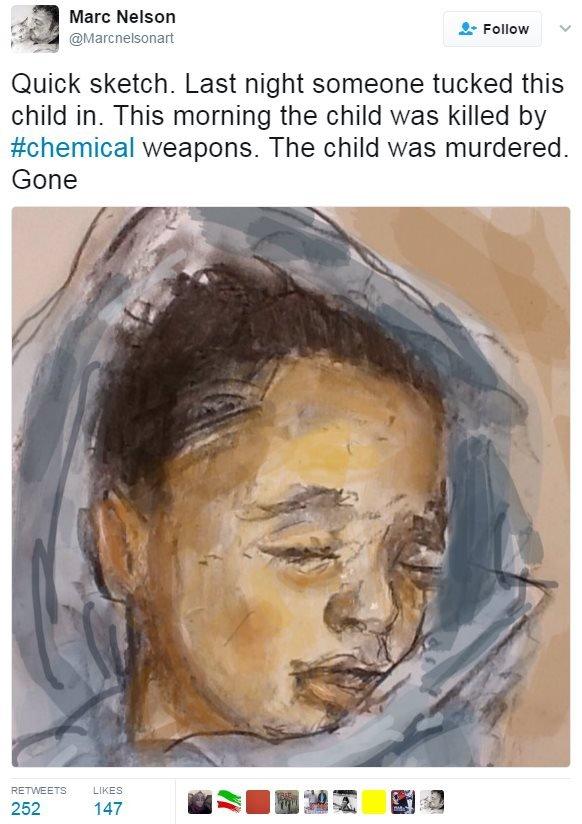
Another is a caricature by Al-Jazeera that was shared on social media showing a Syrian child skipping unknowingly into a grave.
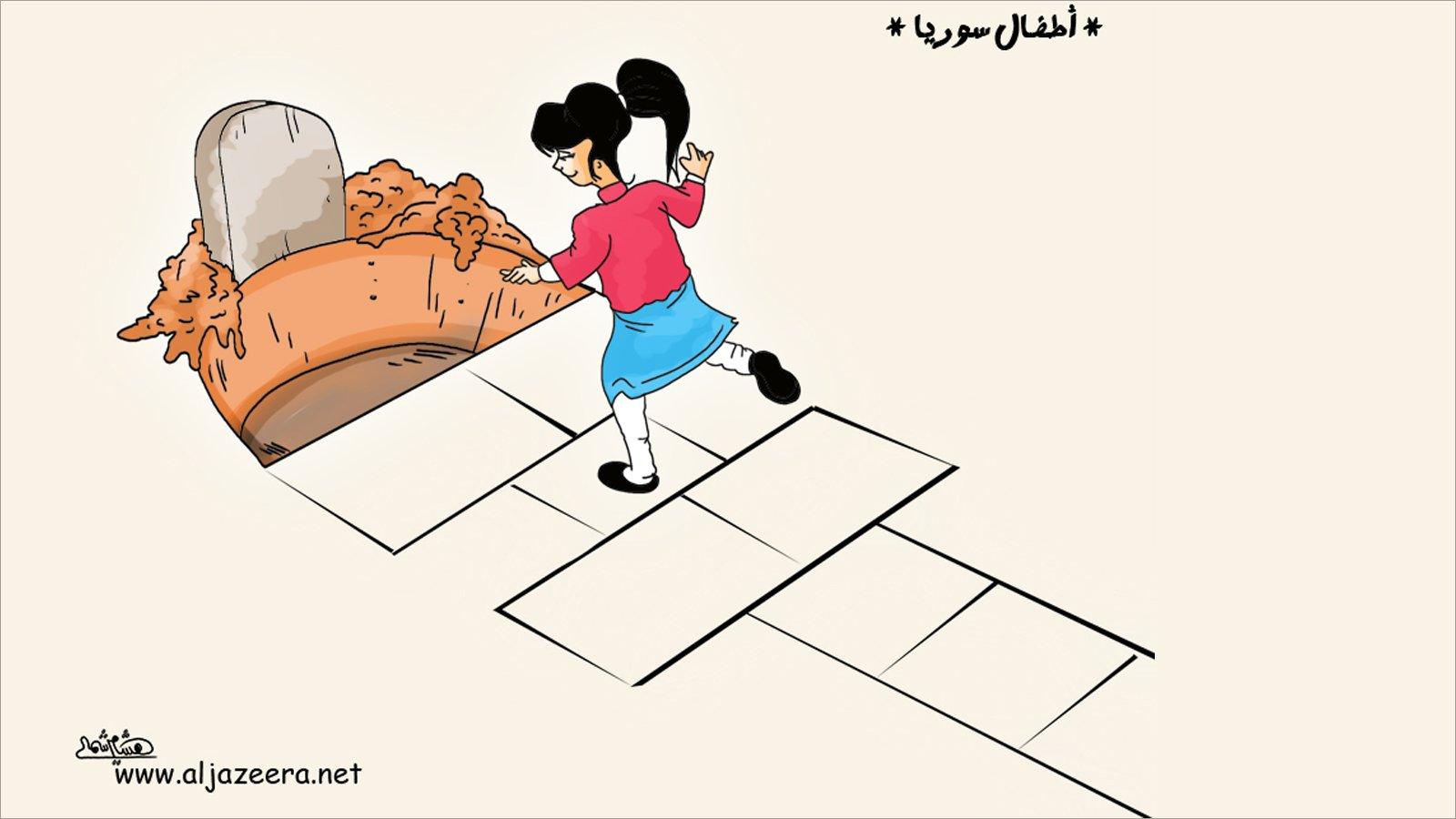
A caricature by Al-Jazeera showed a Syrian child skipping into a grave
Many tweeted blaming Syrian President Bashar al-Assad for the attack, including this picture of Arabic graffiti, external on a wall that says: "Oh Bashar, we ask God that the day comes when you wish for death and don't get it."
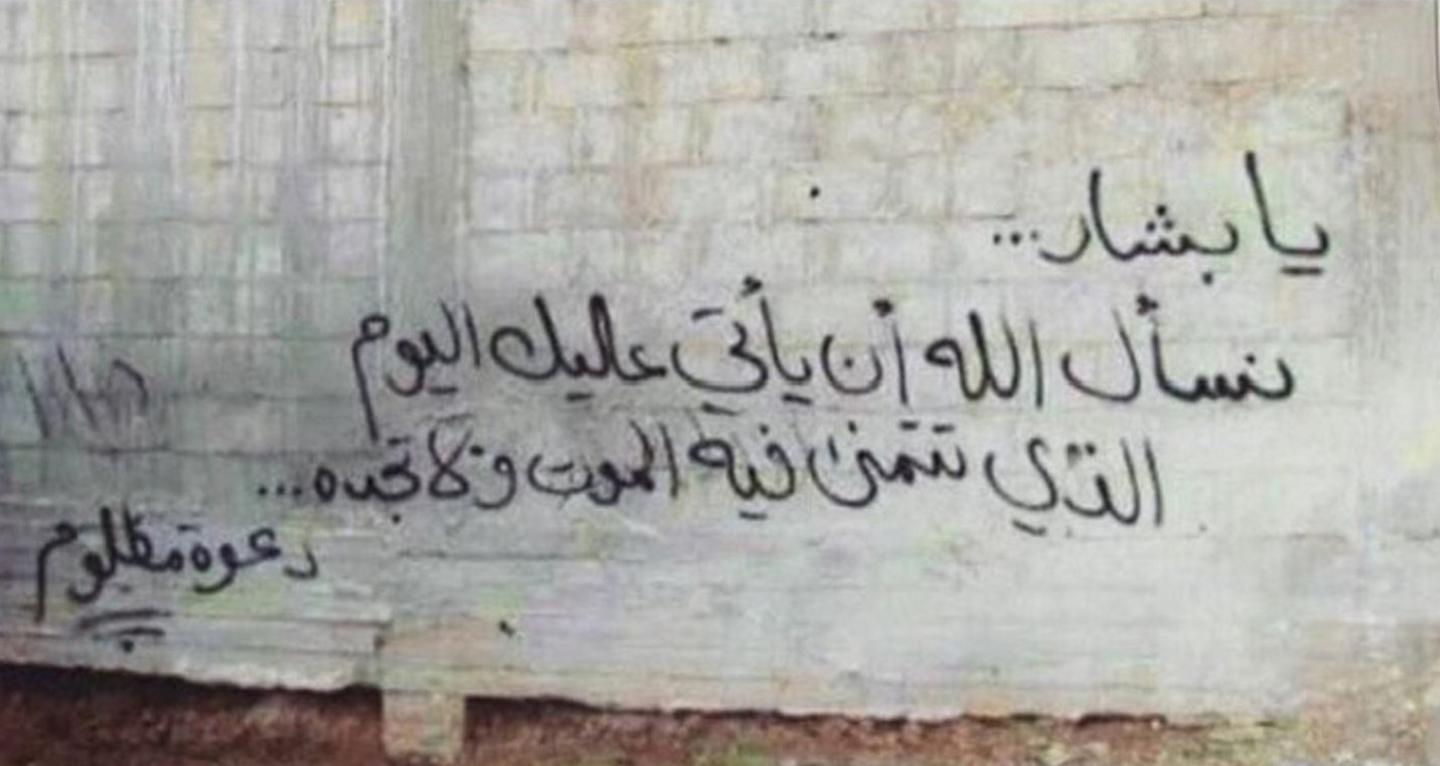
A widely shared image in the attack aftermath showed Arabic graffiti expressing anger towards the Syrian president
The Syrian Revolution Network tweeted, external a caricature of the president holding up a "Nobel Chemical Prize".
Some altered, external an illustration drawn by Syrian cartoonist Yaser Ahmad a few years ago, by depicting the president as the Grim Reaper.
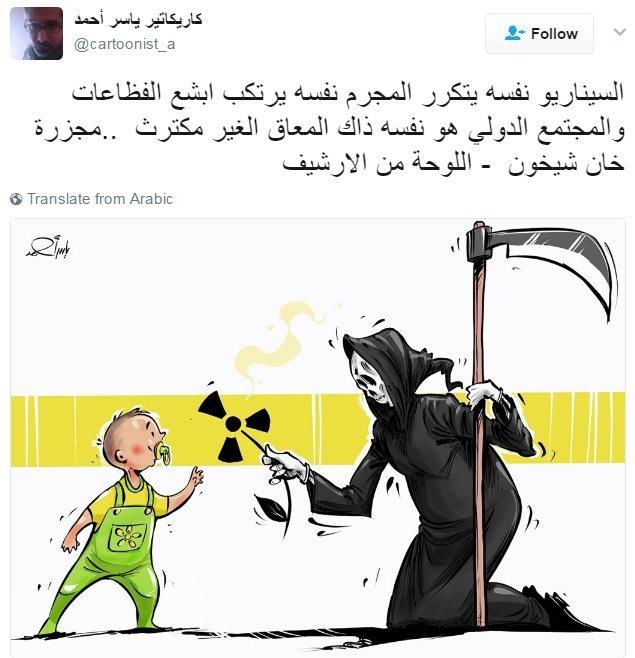
Many shared images from a previous chemical attack in Syria but with "the same criminal"
And a Syria-focused radio station, Rozana FM, shared, external an old cartoon of the president feeding babies bottles of chemical weapons.
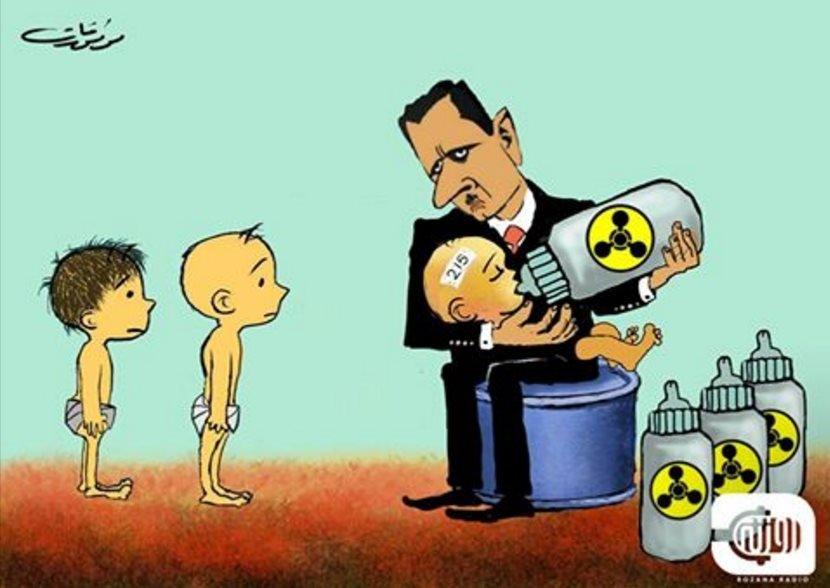
Others chose to offer words of advice to politicians and ordinary citizens alike.
Congressman Ted Lieu gave, external US Secretary of State Rex Tillerson a "cheat sheet" for answering questions on chemical weapons in Syria.
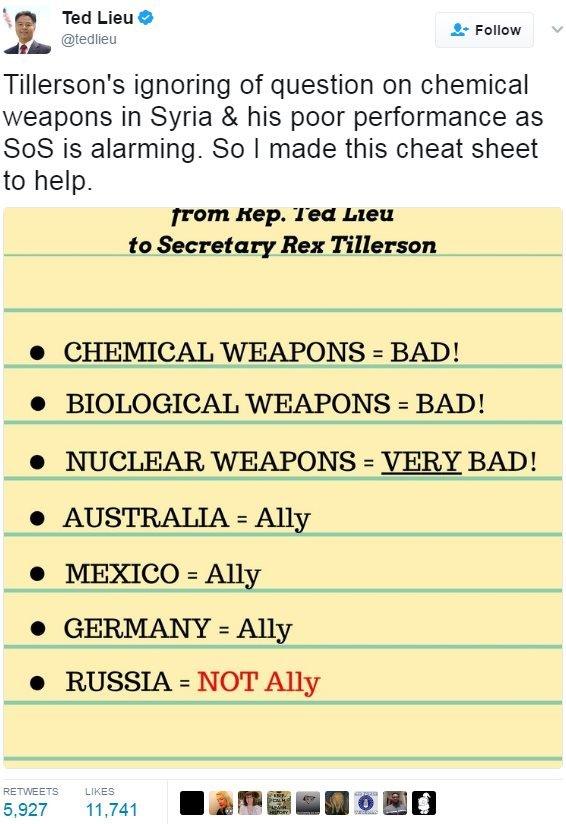
A Syrian reporter from Aleppo tweeted, external a Periscope video, that was viewed 2,500 times, telling people outside Syria that they could help by gathering together to speak up.
While a human rights advocate shared a popular thread, external on ways people "disgusted" by events in Syria can turn "outrage into action".
By the UGC and Social News team